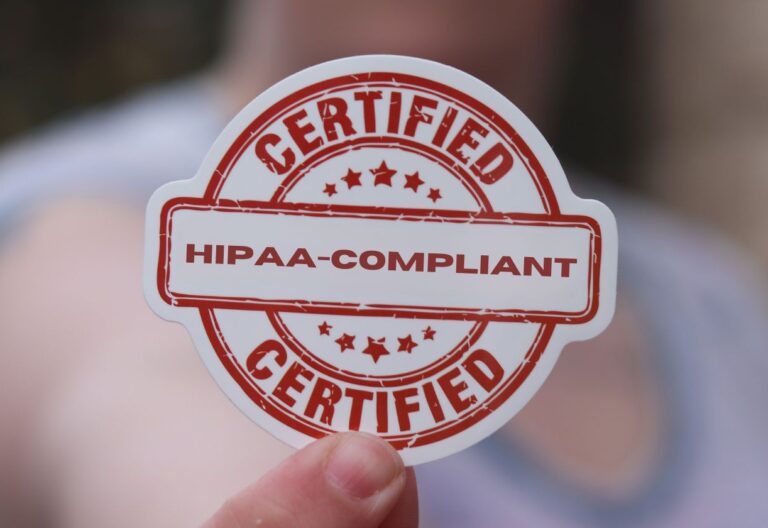Healthcare providers handle sensitive patient information daily, and protecting that data isn’t optional—it’s the law. HIPAA forms are essential tools that safeguard patient privacy while keeping organizations compliant with federal regulations. In this guide, we’ll explain what HIPAA forms are, why they matter, the key types you need to know, and best practices for managing them securely.
Table of Contents
What Is a HIPAA Form?
HIPAA forms are official documents used in healthcare settings to ensure compliance with the Health Insurance Portability and Accountability Act (HIPAA). These forms provide a structured way to handle patient health information (PHI) securely while establishing clear rules for disclosure, authorization, and compliance.
In simple terms, HIPAA forms serve as the legal and administrative foundation for protecting patient privacy. From giving patients control over who can access their health records to documenting organizational compliance, these forms are essential for both providers and patients.

The Purpose of HIPAA Forms
The primary purpose of HIPAA forms is to safeguard patient confidentiality and ensure that healthcare organizations comply with federal privacy and security requirements. These documents serve multiple functions:
- Protecting patient rights: Patients must provide consent before their medical information is shared with third parties.
- Ensuring transparency: HIPAA forms document when, how, and why PHI is disclosed, creating a clear audit trail.
- Minimizing legal risks: By using standardized forms, providers safeguard themselves against potential HIPAA violations and penalties.
- Establishing accountability: These forms hold healthcare providers, insurers, and business associates legally responsible for protecting sensitive health information.
Without HIPAA forms, healthcare organizations would lack the necessary framework to prove compliance with federal law.
Key Types of HIPAA Forms
While HIPAA compliance may seem complex, most organizations rely on a core set of forms to cover the legal and operational requirements. The three most common are the HIPAA Authorization Form, the HIPAA Release Form, and the HIPAA Compliance Form. Each serves a distinct role in ensuring privacy and compliance with regulations.
HIPAA Authorization Form
The HIPAA authorization form is one of the most widely used documents in healthcare. Its primary purpose is to grant explicit permission for the release of PHI to a specific person, organization, or entity.
For example, a patient may need to share their medical records with a specialist for a second opinion. Without a signed authorization form, the provider is prohibited from releasing the records. This form includes details such as:
The type of information to be disclosed (lab results, treatment history, billing information)
- The recipient of the information
- The purpose of disclosure
- Expiration date or conditions under which the authorization ends
Healthcare organizations must also inform patients of their right to revoke authorization at any time. Improper handling of this form could result in non-compliance and hefty HIPAA fines.
HIPAA Release Form
The HIPAA release form is closely related to the authorization form, but it often serves a slightly broader purpose. While the authorization form focuses on granting permission, the release form documents that permission in writing for record-keeping and legal protection.
For instance, if a patient wants their insurance company to access medical bills for claims processing, a HIPAA release form provides proof that the patient agreed to share that information.
In many cases, patients may sign both a HIPAA release form and an authorization form together. This ensures there is no ambiguity about what PHI can be shared and with whom.

HIPAA Compliance Form
The HIPAA compliance form is more about organizational responsibility than patient consent. This form is typically used within healthcare organizations to document policies, procedures, and employee acknowledgment of HIPAA requirements.
Examples include:
- Employee training acknowledgments stating that staff understand HIPAA rules
- Business associate agreements (BAAs) that establish accountability between providers and third-party vendors
- Internal compliance checklists for audits and inspections
By maintaining HIPAA compliance forms, healthcare organizations create an auditable record that proves they are actively safeguarding PHI. This is critical during HIPAA audits or investigations by the Department of Health and Human Services (HHS).
Best Practices for Using HIPAA Forms
Managing HIPAA forms correctly is essential for compliance and patient trust. Here are some best practices to follow:
- Use standardized templates: Avoid ad-hoc documents. Instead, use legally approved HIPAA form templates that meet regulatory requirements.
- Collect signatures securely: Whether on paper or digitally, ensure that patient signatures are collected in a secure and verifiable manner.
- Store forms safely: HIPAA forms contain sensitive data. They must be stored in encrypted databases or secure filing systems.
- Review and update regularly: HIPAA regulations evolve, and so should your forms. Review templates annually to ensure they remain compliant.
- Educate staff: Train employees on the correct handling of HIPAA forms, emphasizing the importance of patient confidentiality.
- Ensure easy access for patients: Patients should be able to access, review, and update their HIPAA forms without unnecessary delays.
- Maintain an audit trail: Always document who accessed forms, when, and for what purpose. This ensures accountability in case of compliance reviews.
By following these practices, healthcare organizations reduce the risk of non-compliance while strengthening patient confidence in their ability to handle sensitive information responsibly.

How iFax Supports HIPAA Forms Management
HIPAA forms are much more than paperwork—they are the foundation of healthcare privacy and compliance. From authorization and release forms to internal compliance documentation, each type plays a crucial role in protecting patient health information and ensuring providers remain aligned with federal regulations.
Managing these forms manually, however, can be time-consuming and error-prone. That’s where digital solutions like iFax make a difference. As a HIPAA-compliant online fax service, iFax makes it easier for healthcare providers to send, receive, and store HIPAA forms securely.
With iFax, organizations benefit from:
- End-to-End Encryption: Protects all HIPAA forms in transit and at rest.
- Digital Signatures: Enable secure e-signing of HIPAA authorization and release forms.
- Audit Trails: Provides delivery confirmations and compliance-ready logs.
- Secure Cloud Storage: Meets HIPAA’s data retention and storage requirements.
- Business Associate Agreement (BAA): Ensures legal accountability for PHI protection.
- Seamless EHR Integration: Simplifies workflows by connecting with existing healthcare platforms.
By using iFax, healthcare organizations not only simplify HIPAA compliance but also build more efficient and secure workflows for managing patient forms.
If your organization is looking for a reliable solution to streamline HIPAA form management, explore iFax’s HIPAA-compliant solutions today.







